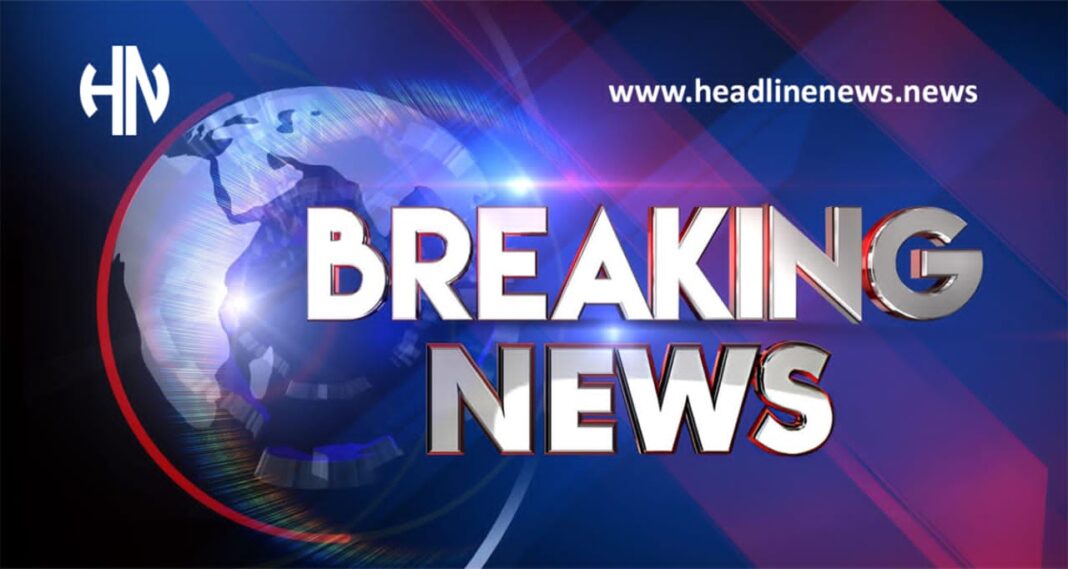Nigeria is approaching a critical moment in global perception, legislative diplomacy and national security responsibility. The recent announcement of government-funded training for 50 Senators—designed to strengthen their global engagement capacity—has generated unnecessary confusion. Public discussion now wrongly links the programme to the Ministry of Finance, an error that undermines the seriousness of the initiative.

A programme of this nature belongs squarely under:
-
Ministry of Foreign Affairs, working through the Nigerian Institute of International Affairs (NIIA);
-
Ministry of Justice, through the National Institute for Legislative and Democratic Studies (NILDS);
-
The National Intelligence Agency (NIA) for strategic and classified briefings;
-
Governance partners such as NDI, KAS, UNDP and others.
This same misalignment was evident during the recent Federal Government delegation to the United States on the CPC/religious persecution issue. The absence of the DG, NIA—whose mandate directly covers global perception, intelligence assessment and strategic communication—was a major oversight. Regardless of political differences, the NIA should have led the strategic dimension of that mission. Excluding the Agency at such a critical moment signals weak coordination and a lack of seriousness in handling information warfare.

When the wrong institutions lead and the right ones are sidelined, the result is confusion—especially when the U.S. Congress expects clarity, unity and strategic depth from Nigeria.
A Widening Gap in International Media Engagement
Nigeria currently lacks a coordinated global communication strategy. In the modern world, media shapes perception faster than formal diplomacy. A nation facing scrutiny over insecurity, human rights concerns and religious tensions cannot afford silence.
Other countries have taken deliberate steps:
-
Kenya used targeted media diplomacy during the ICC crisis.
-
Sri Lanka launched global briefings after its civil war.
-
Colombia actively engaged international outlets during its FARC peace negotiations.
Nigeria has done very little in comparison.
Platforms like Headlinenews.news, other reputable Nigerian outlets, and international media should be empowered to push accurate, evidence-based narratives and counter distortions.
If Nigeria does not actively tell its story, others will continue telling it—often inaccurately.

The Urgent Need for Data Leadership from the NBS
One of Nigeria’s biggest weaknesses is the absence of authoritative official data. External organisations fill the gap with statistics Nigeria disputes, but Nigeria has not provided a stronger verified alternative.
The Presidency must immediately direct the National Bureau of Statistics (NBS) to:
-
Create a dedicated Conflict & Insecurity Data Unit;
-
Compile verified data on:
-
violent incidents,
-
casualties by religion and region,
-
geographic spread of attacks,
-
trends and hotspots.
-
-
Work closely with the Army, Police, DSS and Defence Headquarters to align figures.
If properly executed, NBS data will become the global reference, countering reports based on unverified or politicised information.
This could be Nigeria’s strongest defence.

A Strategic Move: Petitioning the UNHRC
Nigeria must not wait for accusations to harden. A formal petition to the UN Human Rights Council for an independent, evidence-based inquiry would be a decisive move.
Other nations have done the same:
-
Ethiopia during the Tigray conflict;
-
Sri Lanka after the civil war;
-
The Philippines during global criticism of its anti-drug campaign.
Such proactive action:
-
inserts Nigeria’s own verified data into global reports;
-
provides neutral validation;
-
prevents one-sided narratives;
-
strengthens Nigeria’s position in global diplomacy.
Silence will only be interpreted as admission.

Strengthening the Domestic Front: Engaging Traditional & Religious Leaders
Nigeria’s strongest voices of social cohesion are its religious and traditional leaders. No national security strategy is complete without them.
Like Indonesia, Egypt and Ethiopia, Nigeria must host a Presidential National Cohesion Summit, bringing together:
-
religious leaders (Christian and Muslim),
-
traditional rulers,
-
interfaith bodies,
-
cultural institutions,
-
socio-cultural organisations.
Such a summit would:
-
harmonise communication,
-
counter misinformation,
-
reassure communities,
-
build trust,
-
strengthen unity at the grassroots.
This is a strategic necessity—not a ceremony.
The Presidency Needs a Fully Dedicated Strategic Crisis Unit
Nigeria needs a specialised crisis coordination team—similar to:
-
the U.S. NSC,
-
the U.K.’s COBRA,
-
Israel’s Security Cabinet,
-
Rwanda’s Strategy Unit.
Nigeria’s version must integrate:
-
security and intelligence agencies (with NIA at the centre),
-
foreign affairs and legislative teams,
-
media coordination,
-
data analytics from NBS,
-
crisis communication mechanisms.
Nigeria cannot continue responding to complex global narratives with fragmented ministries and slow reactions.
The U.S. Congress Is Monitoring Nigeria Closely
Nigeria is under growing scrutiny from Washington. Without coordinated action:
-
sanctions could be proposed;
-
negative reports will increase;
-
diplomatic pressure will deepen;
-
Nigeria’s global partnerships may weaken.
The U.S. is watching not only Nigeria’s statements—but its actions.
This moment requires strategic discipline, not administrative confusion.
The Way Forward
Nigeria must urgently:
-
Create a Strategic Coordination Unit;
-
Launch a global counter-narrative media campaign;
-
Empower the NBS as the sole official source of insecurity data;
-
Request a UNHRC investigation;
-
Hold a National Cohesion Summit;
-
Ensure NIA leads strategic global engagements;
-
Deploy Nigeria’s most competent professionals across party lines;
-
Replace underperforming officials, especially in security roles.
Conclusion: Nigeria Must Own Its Narrative
Nigeria stands at a defining moment. Insecurity and religious tension are real, but external distortions make the situation even more dangerous. If Nigeria does not act—coherently and strategically—others will continue shaping the global perception.
As The National Patriots wisely state:
“Nigeria must define her truth through strategy, data, unity and decisive leadership.”
The structures exist.
The expertise exists.
The opportunity exists.
The question is whether the will exists to act—boldly and immediately.
Princess Gloria Adebajo-Fraser, MFR
The National Patriots
Matching Categories (4)
-
Politics
-
International
-
Insecurity
-
Headlinenews



